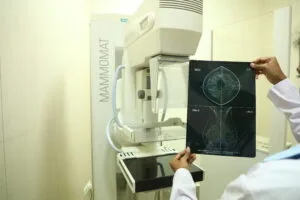HLA B27 Detection: Flow Cytometry & PCR

HLA-B27 – CLASS 1 MHC protein is the hallmark of the genetic component of spondyloarthritides, and about 90% of patient with ankylosing spondylitis (AS) carry this antigen – it is present in 80-95% of patients with AS, in contrast to only 8% of the general population.
Currently, there are 2 major methodologies available for the testing of HLA-B27:
- Flow Cytometric Immunophenotypic (FCIPT)
- Polymerase Chain Reaction (PCR)
| FCIPT | |
| Pros | Cons |
| A small percentage of cases give indeterminate/inconclusive results which can be resolved only on testing with PCR. |
| PCR | |
| Pros | Cons |
| Definitive – no inconclusive/indeterminate results, unlike flow cytometry. |
|
To understand the actual real-world differences between the two methodologies in detecting HLA-B27, Suburban Diagnostics performed an 8 month study.
Our findings were:
- 0% samples tested by PCR gave a result of inconclusive/indeterminate
- 6.65% samples tested by flow cytometry gave a result of inconclusive/indeterminate
To understand the true HLA-B27 status of these indeterminate samples, we tested them with PCR and found that:
- 75% POSITIVE for HLA-B27 on PCR
- 25% NEGATIVE for HLA-B27 on PCR
Conclusion:
Only a small percentage of samples tested using FCIPT were inconclusive/indeterminate. However, most of these indeterminate samples turned out to be positive. Reflex testing with PCR for any flow cytometry samples that give an indeterminate result will give us the best of both worlds.
#unburdenhealthcare with us.



